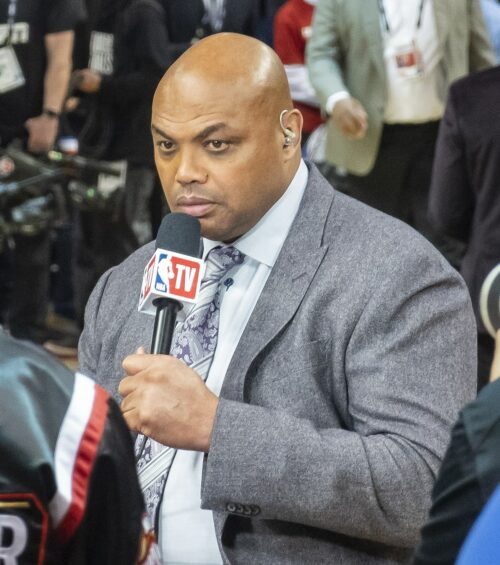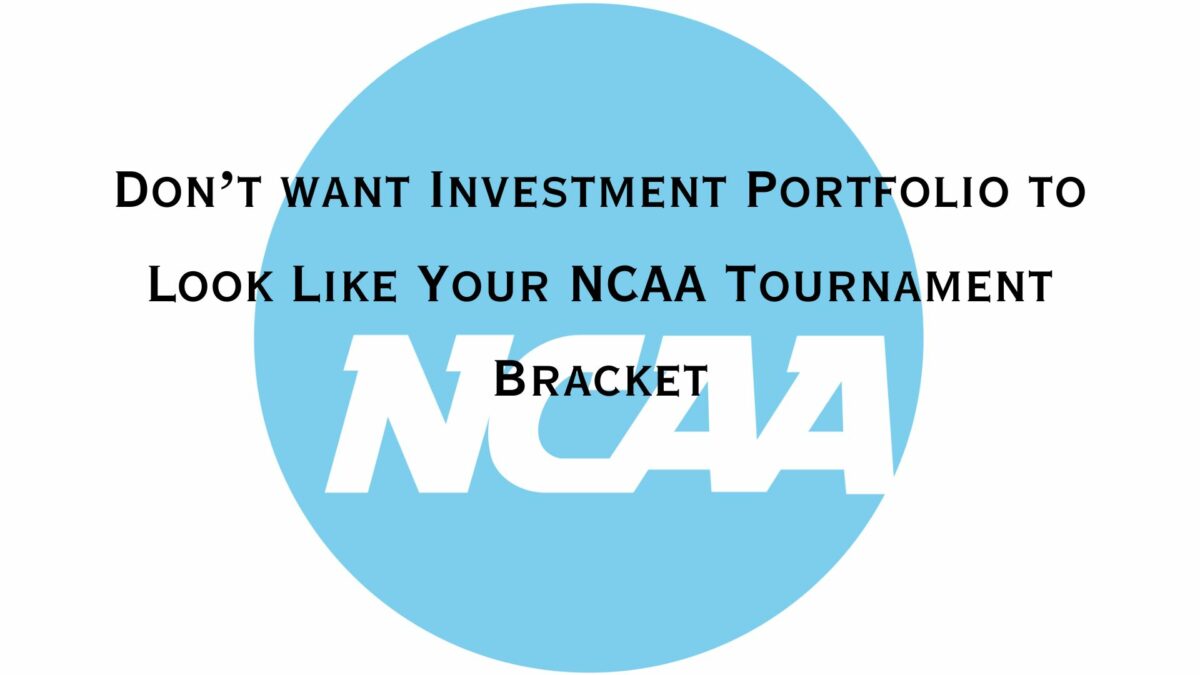Hat tip to Kimberly Blanton at the Boston College Center for Retirement Research for the inspiration.
“If I weren’t earning $3 million a year to dunk a basketball, most people on the street would run in the other direction if they saw me coming.”
–Charles Barkley

Every year, my wife’s company runs an informal, for fun NCAA basketball tournament March Madness bracket competition. Having been short and slow as a kid, I never got into basketball (maybe we should do a World Cup bracket instead), so I’m not particularly well-informed when it comes to college basketball.
However, in the first two years that my wife worked there, she won, I won, and I came in second place in the pool.
For the past eleven years, I’ve been living on the laurels of that victory, utterly convinced, every year, that I’m going to be the runaway champion of the bracket challenge.
Each year, something happens, and I generally wind up mid-pack, or worse (thanks, Gonzaga and St. Louis).
Yet, each year, hope springs eternal, and like Al Bundy reliving his high school football playing glory days, I hearken back to the days of yesteryear to see if I can conjure up some of the old bracket picking magic.
In many ways, we treat our investment portfolio like our NCAA tournament brackets, to our retirement’s peril.
- We pick the name brands. I have no idea how many people chose the higher seeded team to win every game, but it is rare to see a #1 seed play a #1 seed in the final game. Similarly, we follow herd behavior when we invest, and we put our money in investments because we’ve heard of the name before, ignoring other telltale indicators like financial fundamentals.
- We go with what the pundits tell us. If Jay Bilas thinks that Creighton is a great darkhorse pick because they can shoot 3 pointers better than anyone else in the land, you can expect a ton of people to pick Creighton (like me) to go a long way in the tournament. Similarly, if Jim Cramer presses the “BUY BUY BUY” sound effect button for a given stock, you can bet that on the market open the next morning, that stock will have a temporary pop because of CNBC-obsessed retail investors flooding the market with their buy orders.
- We confuse random luck for skill. The chances of picking all 65 games correctly is 1 in 18 quintillion. Yet, when the IT manager won the pool last year because he tried to determine which mascot would win in a cage match, he suddenly becomes the NCAA expert and guru, even though he couldn’t tell you the difference between a 2-3 zone and a triangle and 2 defense (trick question). We do the same thing with our investment strategies. We think that we somehow have an inside edge over the quant jocks in New York City and the investment analysts who are walking the floors of their portfolio companies. It generally takes between 20 and 25 years of investing just to determine if you’re skillful rather than lucky.
- We remember that one time… Just like I am convinced (rationally so, I might add) of my NCAA tournament picking skills because of the office pool victory back in the mid 2000s, we fail to acknowledge the reality of our skills, or lack thereof. Instead, we fall victim to Monkey Brain, letting selection bias skew our view of our abilities rather than give us a representative picture of our true abilities.
While it may be fun to smack talk against the competitors in the office NCAA tournament pool, there’s no way I’d actually put meaningful money behind my skills and abilities. I’d require a staff of scouts, deep fundamental basketball acumen, and insider knowledge of all 64 locker rooms before I’d even consider it, and even then, I wouldn’t. After all, there’s a degree of luck involved; ask Iowa State about being unlucky.
Similarly, we retail investors rarely, if ever, have the full picture of ANY company in which we could invest. Even then, we can’t possibly know how the vicissitudes of Lady Luck will treat those companies; what if the plane carrying the management team goes down in a crash or the FDA unexpectedly denies Phase III trials of what was sure to be a blockbuster drug in the pipeline? We never know exactly what will happen, just as we never know the true outcome of what will happen on the court (right, Georgetown?).
Instead, we’re better off spreading out the risk, diversifying, and playing the field rather than trying to pick the one winner out of the field of thousands.
Which is better? Picking tourney teams or picking individual stocks? Tell us your thoughts in the comments below!
Author Profile
- John Davis is a nationally recognized expert on credit reporting, credit scoring, and identity theft. He has written four books about his expertise in the field and has been featured extensively in numerous media outlets such as The Wall Street Journal, The Washington Post, CNN, CBS News, CNBC, Fox Business, and many more. With over 20 years of experience helping consumers understand their credit and identity protection rights, John is passionate about empowering people to take control of their finances. He works with financial institutions to develop consumer-friendly policies that promote financial literacy and responsible borrowing habits.
Latest entries
 Low Income GrantsSeptember 25, 2023How to Get a Free Government Phone: A Step-by-Step Guide
Low Income GrantsSeptember 25, 2023How to Get a Free Government Phone: A Step-by-Step Guide Low Income GrantsSeptember 25, 2023Dental Charities That Help With Dental Costs
Low Income GrantsSeptember 25, 2023Dental Charities That Help With Dental Costs Low Income GrantsSeptember 25, 2023Low-Cost Hearing Aids for Seniors: A Comprehensive Guide
Low Income GrantsSeptember 25, 2023Low-Cost Hearing Aids for Seniors: A Comprehensive Guide Low Income GrantsSeptember 25, 2023Second Chance Apartments that Accept Evictions: A Comprehensive Guide
Low Income GrantsSeptember 25, 2023Second Chance Apartments that Accept Evictions: A Comprehensive Guide

